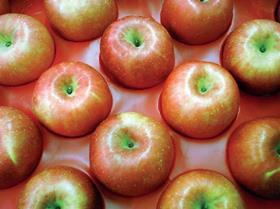
Orchards in the heavily polluted coal town of Huailai county in Zhangjiakou, China, are reportedly producing apples with a blackish tone after years of exposure to the soot-filled air, according to the South China Morning Post.
Intensive coal mining, alongside minimal regulation and safety standards, mean that everything from crops to homes in Zhangjiakou are perpetually coated in coal dust.
Farmers in Hebei's Tumu village, which is overseen by Huailai county and is only 2.5km from one of the largest open-cast mining districts in northern China, have said they cannot shelter their crops from airborne dirt and dust from the mines.
'We grow fruit orchards over here, but nobody wants to grow fruit any more,' a farmer in Huailai county told state media. “There’s no way to sell it. Who wants it if it’s polluted? Take apples, for example. They are all black around the hollow of the stalk. Who's going to buy them?'
A local resident claimed that many local farmers had attempted to petition the authorities to bring attention to the impact the pollution had on their livelihood, but these had not seen any changes implemented.
The Chinese government has committed to improving air quality, but at present smog and greenhouse gas emissions persist, with the northern regions worst affected.
Last week, the state council announced ten anti-pollution measures to address the crisis, including a commitment to cutting pollution from six smog-producing industries by 2017, according to an official media report.



